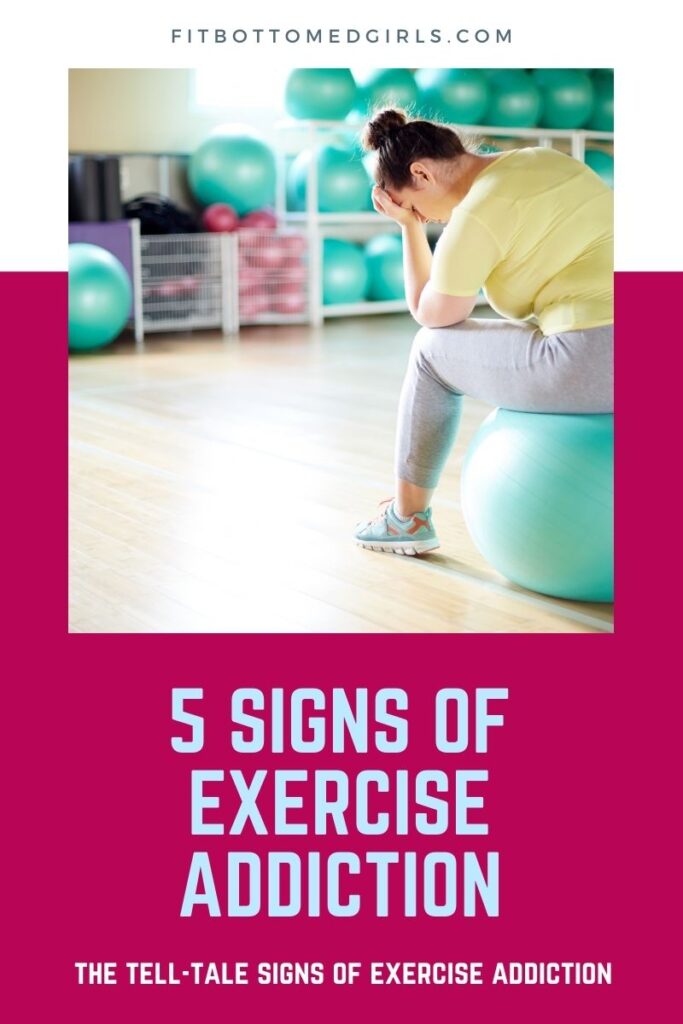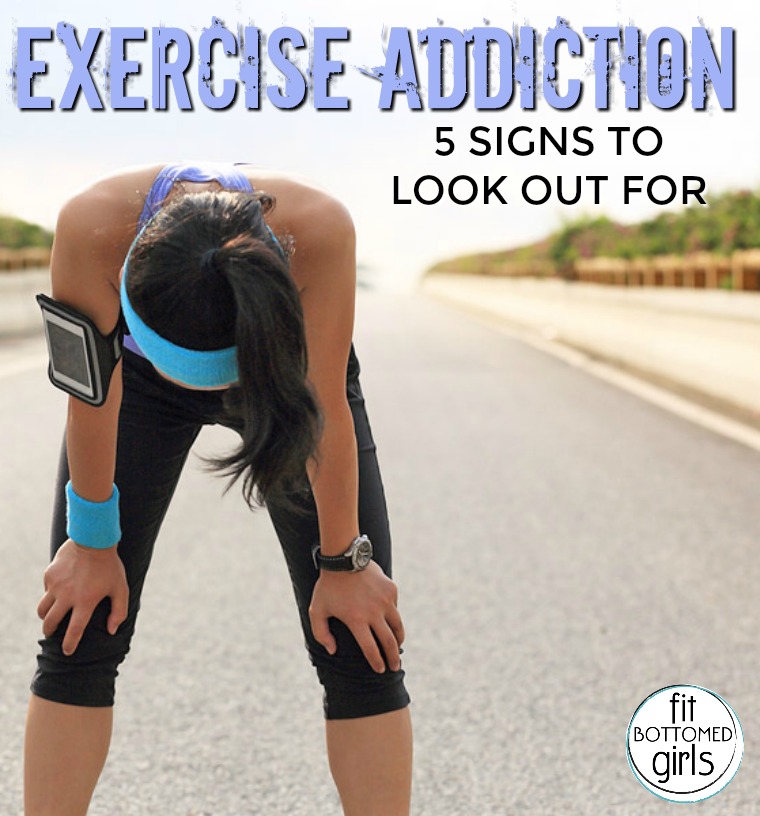5 Signs of Exercise Addiction
I’m probably not the first to tell you that working out is fantastic and so good for you. We believe in it so much here at FBG that we’ve built an entire website around making exercise a bigger part of your life, maintaining your workout mojo, and finding new ways to work out. And if you’re like us, working out is truly the happiest hour (more or less) of your day.
For some people though, that love of exercise can quickly turn to an addiction, forming an unhealthy obsession with working out. Exercise addicts experience uncontrollable urges to exercise to the point of excess, where other aspects of their lives take a back seat.
And in this time where people seem to be getting more and more sedentary, exercise addiction might sound like a good problem to have. But it’s a serious condition that can cause significant psychological and physical damage.
At its core, exercise addiction is an addiction to endorphins and dopamine released by the body during exercise. An addict essentially gets hooked on the high that comes from working out — a high that fades once the workout is over — so these individuals feel compelled to keep exercising constantly in order to keep experiencing that high. For someone who is addicted, that high will get prioritized over every other aspect in her life and ultimately becomes more important than her relationships, responsibilities, and overall health.
On other words, it’s serious business. The bottom line is that too much of a good thing isn’t balance. There comes a point when an obsession with working out will throw your whole life out of whack. So it’s critical that we learn to recognize these tell-tale signs of exercise addiction.

5 Signs of Exercise Addiction
1. Your workouts or training interfere with your relationships. This goes beyond friends or family giving you a little crap about how much you work out. The problem is when working out actually alienates you from those around you. You might consistently skip social activities/events or family obligations in flavor of working out. You might even start to resent anyone who makes you feel guilty about working out or tries to interfere with you getting more. Red flags should go up if the importance you place on training or the amount of time you spend working out is a constant bone of contention or causes your relationships to suffer.
2. Your workouts or training interfere with your responsibilities. If your workouts or training get longer (and I don’t mean like your long runs for marathons training get predictably longer every week) and you still can’t get enough, it’s an issue. And just like other addictions, over time it’ll take more and more exercise to get that same sense of satisfaction that you’re looking for. You may find yourself prioritizing your workouts over work or — worse yet — over sleep making it impossible to perform tasks around the house and causing your work or school performance to suffer. Excessive amounts spent on gym memberships or fitness equipment may make it impossible to pay your other bills.
3. Your workouts or training are prioritized above your health and well-being. Most of us start working out as a means of improving our overall health and well-being. But when your workout is more important to you than actually taking care of yourself — say like when you’re sick, hurt, exhausted, or burnt out — it’s time to reconsider. And while exercise is known to be an effectively strategy to combat feelings of depression, if the only times you feel good are when you’re exercising or immediately after, it’s time to consider whether working out is really helping you or just feeding your addiction. Anytime you find yourself engaging in a behavior that is directly or indirectly causing you physical or emotional harm, it’s time to seek help.
4. Your workouts or training aren’t yielding a higher level of performance. The great paradox with exercise addiction is that performance is not commensurate with the time spent training. An addict favors quantity and when all you care about is getting more workout time in, your performance will suffer. Unlike a well-balanced training program that involves periods of rest and recovery, an addict will try to go hard all the time and will have difficulty scaling back.
5. Your workouts or training are tied to your self-worth. Look, having physique or fitness goals isn’t inherently bad. The problem begins when you attach your self-worth to these goals. An addict loses perspective of their overall worth and tends to only see their worth in terms of the gains she makes (or doesn’t make) in the gym. And when gains slow or cease, self-esteem goes down the drain and it will manifest as self-hatred, disgust, anger, depression or agitation at the thought of missing a workout.
An important distinction to make here is that is has less to do with the amount of time you spend working out and more about the intent behind your workouts and how much importance you place on it relative to the rest of your life. For most of us FBGs, fitness is a form of self-love … and rightfully so. But when the need for more and more fitness overtakes all other priorities in your life, well, that’s NOT self-care or balanced living.
If any of this sounds like you or someone you know, find a counselor to speak to. Remember that exercise should have a positive impact on your physical and mental health, not destroy it.
Have you ever struggled with exercise addiction? What resources did you find helpful to break away from it? –Alison


Comments
Hi,
The article is very nicely written and the content is very good keep on sharing the articles like this.
Nice post!! well explained and thanks for sharing it.
I like these types of addiction of exercise.exercise is very useful for our health.i read daily new tips of exercise.
yes, that is correct exercise is to make a positive on our health and body, not to destroy it.
Nice approach thanks for the exercises. Health is the most important part of life nothing is more valuable than good health nice post thanks for share.
I can’t imagine a single day without exercise. About healthy life, I think exercise act like key for lock. Thanks for sharing.
Amazing content as always! There’s always time to fit a quick workout in! Keep up the excellent fitness blogs.
I definitely had a couple of these when I first started. Like everything else, too much of a good thing can be bad for you. Great article!
If you’re gonna be addicted to something….may as well go with this. Carry on.
Comments are closed.